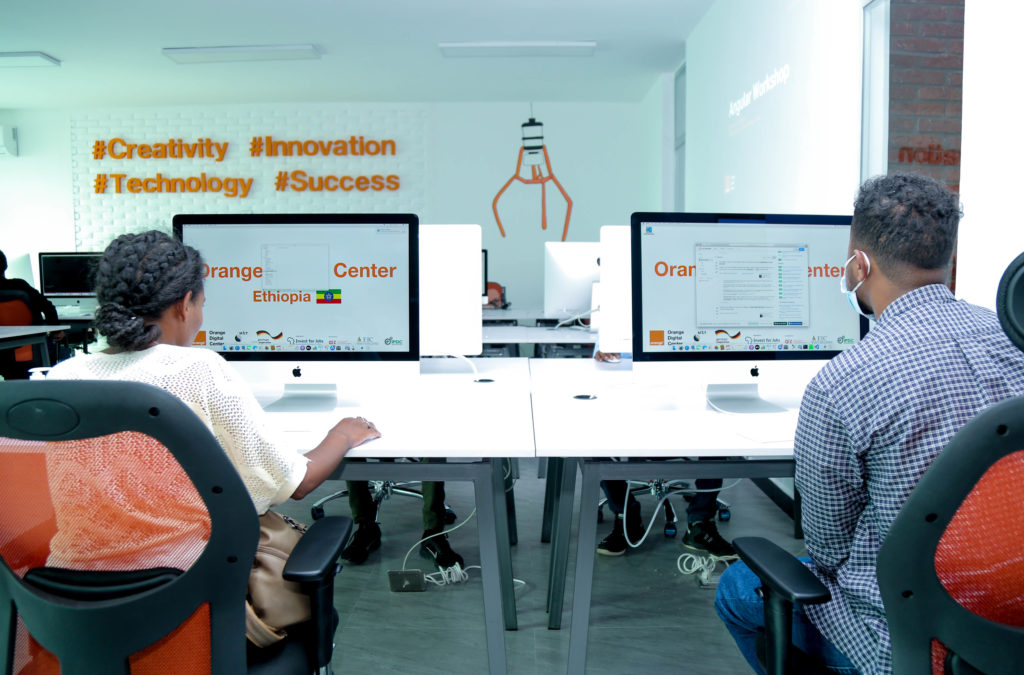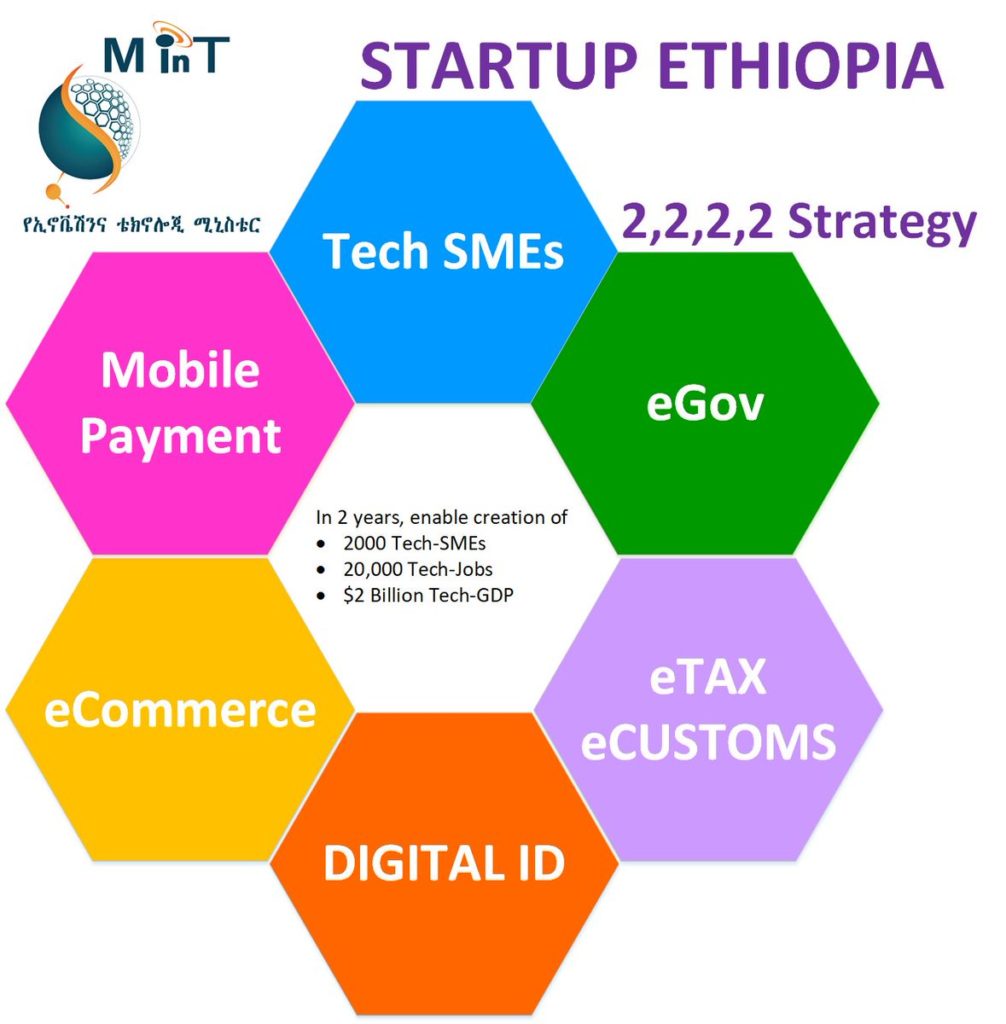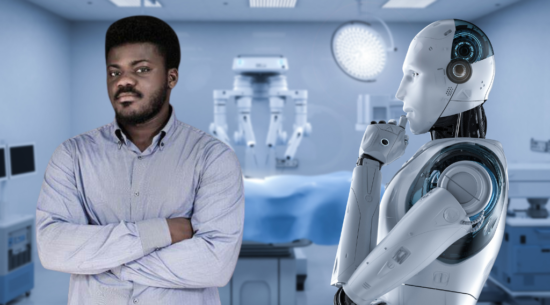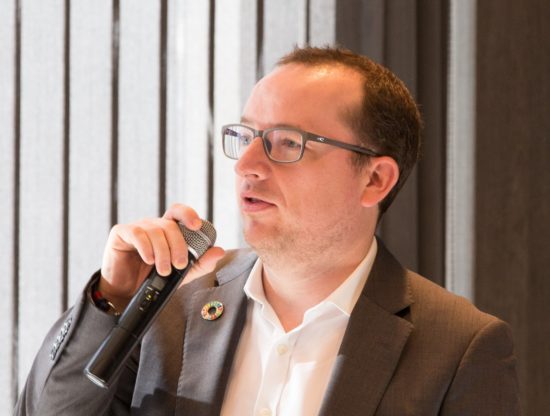Can you remind us of the Orange Digital Center (ODC) concept?
ODCs were created to provide free access to resources, infrastructure, equipment, networking, support and potentially investment to youth and women. In concrete terms, the ODCs are a resource center for project leaders, regardless of the level of development of their project. This is done through the 4 spaces that make up these ODCs.
The first is a Code School that provides training in digital professions. We work on technical skills, but also on soft skills such as communication, learning to manage stress... life skills.
We also have a Solidarity FabLab, a digital manufacturing space where you can make whatever you want: a prototype, an object, a work of art... The FabLab is part of the Orange Foundation’s network.
The same goes for the Orange Fab, which is also part of an international network, whose specificity is to offer startups support in their commercial development through partnerships with the Orange Group.
The final area is the Orange Venture Africa Fund, which has a budget of €50 million and is designed to invest in startups with a highly advanced technological dimension.
What is special about this third ODC in Ethiopia compared to those in Dakar and Tunis?

The ODCs, which belong to the same network, have a common goal, namely to promote the employability of young people, support digital inclusion and foster technological innovation. That said, we can have different approaches, it is even more interesting to do so, as the labor market differs from one country to another. It is a global concept, but with approaches and activities that may vary from one country to another. In other words, each ODC has its own specificity.
One of the specificities of the Ethiopian ODC is that it is located in the ICT Park, which is a technology park in Addis Ababa and is intended to host government offices and companies that focus on tech, among others. Therefore, we are in the heart of the ecosystem along with people we can collaborate with at some point.
Why Ethiopia? It is not a traditional country for the Orange Group. A highly coveted market, in the midst of liberalization, an English-speaking country...
The answer is fairly simple. We have a partnership with GIZ [Ed: Deutsche Gesellschaft für Internationale Zusammenarbeit, the German international development cooperation agency], on the development of ODCs in 14 countries in Africa and the Middle East. GIZ, which has a strong presence in Ethiopia, with nearly 1,000 employees, invited us to invest here, where Orange, as you pointed out, is not traditionally present, in order to meet the challenges of the Ethiopian ecosystem. We gladly accepted that challenge.
Ethiopia has a rapidly developing digital ecosystem, with plenty of things being done, but also with people and organizations that need to be supported.
Statistically, joining Ethiopia means having the opportunity to impact the entire continent. Indeed, in Africa, 20 million young people enter the job market annually, according to the World Bank. In Ethiopia, 2 million young people enter the job market every year, and only half of them find a job. In a country with a young population, over 70% of the population, these young people, although qualified, have difficulty finding high value-added jobs. Responding to this problem in Ethiopia means solving 10% of the continent's challenges and contributing to the creation of employment and social value.
Most in-demand resources on the continent are training, coaching and financing.
Today, we are at a very important moment in the history of the Ethiopian tech ecosystem. A lot of steps have been taken by the government to develop this ecosystem, including the "2222" strategy - for 22,000 tech jobs, $2 billion in tech-related GDP, and 2,000 tech startups created. It is one of the strategic documents that emphasizes the importance of technology in the overall government strategy.

The Ethiopian technological ecosystem is indeed under construction. Ten years ago, we had an Internet penetration rate of less than 1%; we were at the very beginning of the digital era in the country. Today, incubators are developing; there are some great examples of startups, and above all, a large number of young people who need to be trained, have access to resources and be supported. One of the most requested resources on the continent is training, coaching and financing.
In our ODC, we offer all of these at the same time. And for free, since it is a CSR project. We join the actors of this ecosystem to ensure that startups and project leaders can have access to these resources.





